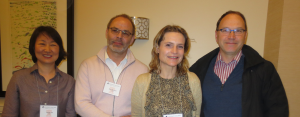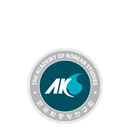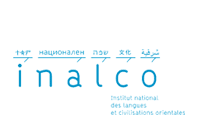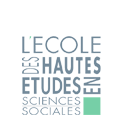Le panel « Shadow Capital Cities in the Korean World » organisé par Valérie Gelézeau (EHESS) et présidé par Timothy Tangherlini (University of California) a été présenté au colloque annuel de l’AAS (Association for Asian Studies) qui s’est tenu à Philadelphie du 27 au 30 mars 2014.
Les participants ont regretté l’absence d’Elisabeth Chabanol qui, retenue par son travail à Pyongyang, n’a pu les rejoindre. A ce gigantesque colloque qui réunissait plus de 360 panels et tables rondes, le « French panel » a eu l’honneur d’être écouté par de nombreux collègues, dans une salle comble. Les trois communications – « Kyŏngsŏng and the Fabric of Coloniality » (A. Delissen), « Emergence of a Shadow: Songdo, a Globalized Mega-Project in the Shade of Seoul » V. Gelézeau) et « Revival of a Shadow: The Korean Ethnic Elites of Almaty (Kazakhstan) and the Building of the Korean House in a Diasporic Capital » (E.-S. Yim) -, ont suscité de nombreux débats et échanges entre les intervenants et le public comme en témoignent les discussions très intéressantes, notamment autour du méga-projet de Songdo. Par ailleurs, le souci de dégager une problématique commune à la notion de « Shadow Capital Cities » à travers divers objets traités a été particulièrement apprécié. Ainsi, par l’originalité de sa thématique et la diversité des démarches et des réflexions qu’il implique en sciences sociales, le « French panel » à l’ASS de 2014 a contribué à ouvrir un nouveau chantier permettant non seulement d’élargir les « études coréennes », mais aussi de promouvoir celles-ci dans les « études asiatiques » en général.
—————————————
Panel: « Shadow Capital Cities in the Korean World »
Organisatrice : Valérie Gelézeau (Ehess)
Président et discutant: Timothy Tangherlini (University of California, Los Angeles)
Participants : Alain Delissen (Ehess, « Shadows in the Showcase: Kyŏngsŏng and the Fabric of Coloniality »), Valérie Gelézeau (EHESS, « Emergence of a Shadow: Songdo, a Globalized Mega-Project in the Shade of Seoul »), Eunsil Yim (Université Paris-Diderot, « Revival of a Shadow: The Korean Ethnic Elites of Almaty (Kazakhstan) and the Building of the Korean House in a Diasporic Capital).
* Elisabeth Chabanol (EFEO, Archaeology of the Shadow: Splendors and Deeds of Kongju, the Abandoned Capital »), retenue par son travail à Pyongyang n’a pas pu participer.
Abstract : Based on a transdisciplinary and comparative approach of the social sciences, this panel seeks to go beyond classical analysis of capital cities in the Korean World (the two Koreas and the diaspora) that usually focus on the capitals situated at the center of the State or national territory, such as “hyper-capital cities” (Seoul and Pyongyang) that cumulate core functions (historical, political, economical) in the nation and are part of a larger international order; and former capital cities that legitimate the present States’ meta-narratives (Kyŏngju and Kaesŏng).
Whereas previous research on Korean cities has largely focused on topics of the relationship between political power and capital cities, major planning and building projects involving capital cities, hyper-capital cities and social elites, and heritage and conservation in historical capital cities, this panel intends to add to that conversation by examining so-called “shadow capital cities”. Defined as subaltern or marginal capitals, they are numerous in Korea: historical capital cities of States that were marginalized in the unification discourse (Kongju or Puyŏ), once forgotten capital cities (such as Suwŏn), fantasized capital cities (of the future reunified Korea), near-capital cities in the making (Sejong-si), appendix-capital cities in the making (Songdo), diasporic capital cities (Los Angeles or Almaty), and others.
How does one explain the plurality of these shadow capital cities in the Korean World? Could those cities be envisioned as coherent socio-spatial objects, and what peculiarities do they share (or not) in terms of status, forms, functions and social fabric?
The panel will focus on four case studies and four disciplines (archaeology, history, geography and anthropology).
Source: Centre Coree







